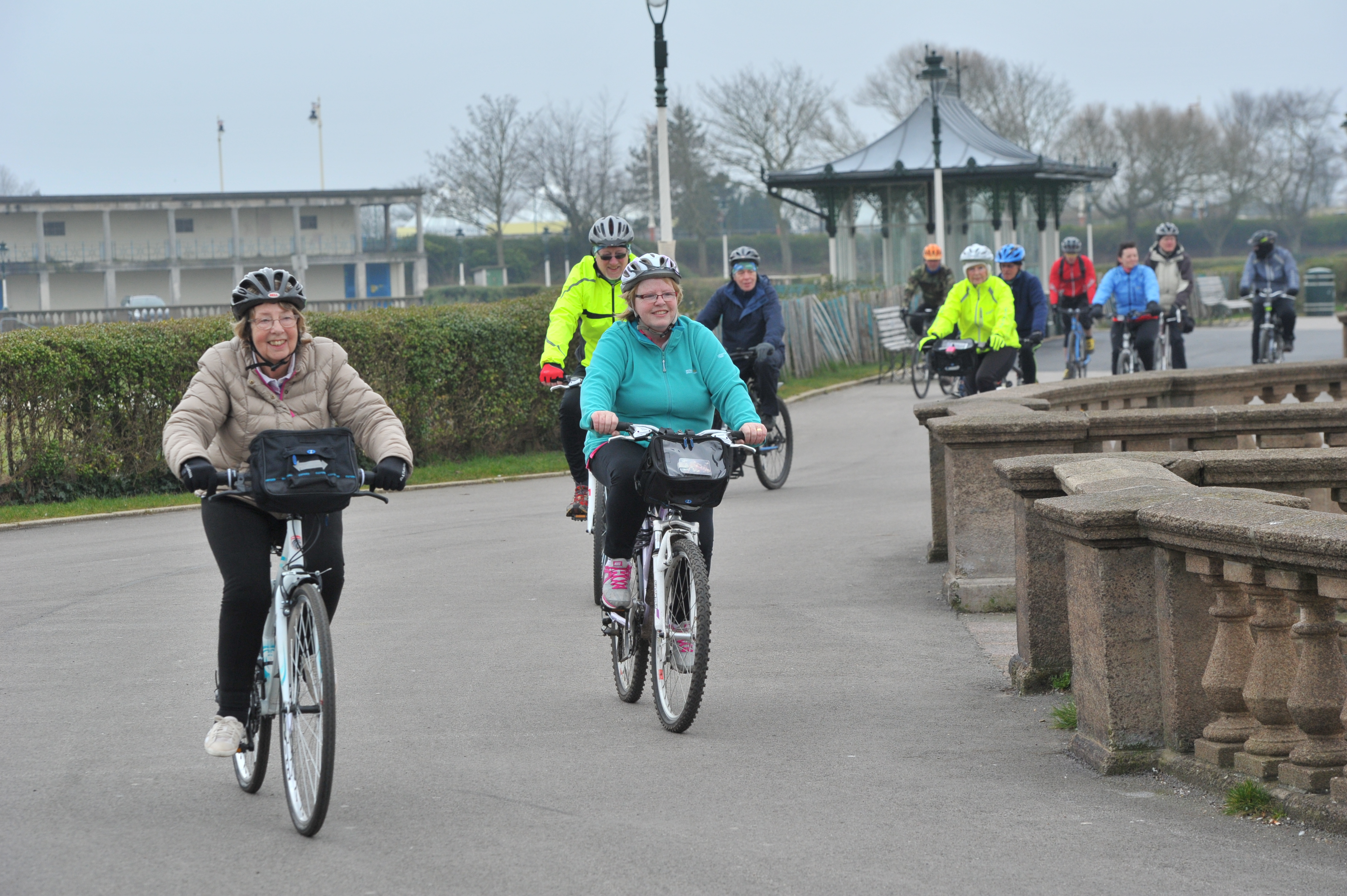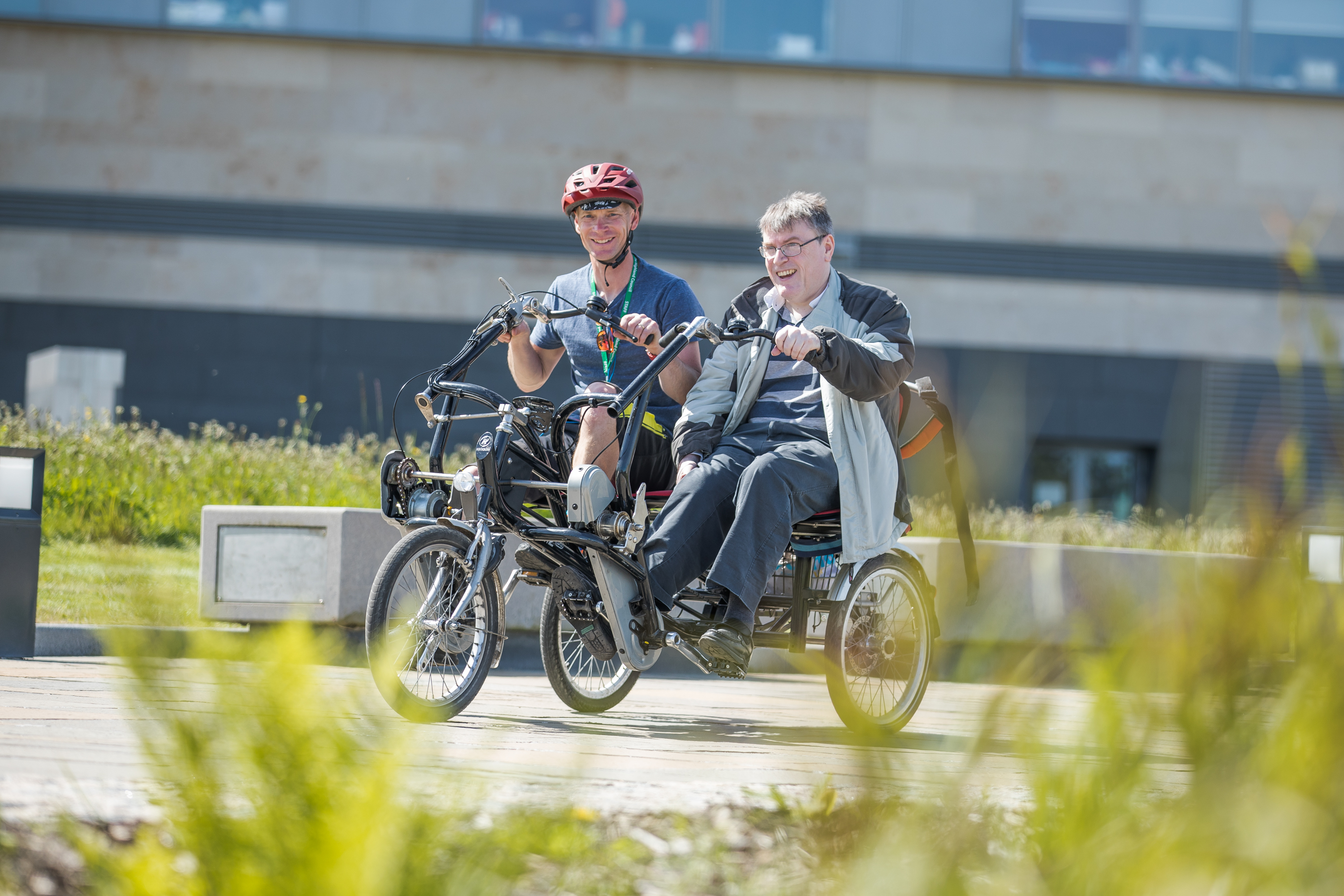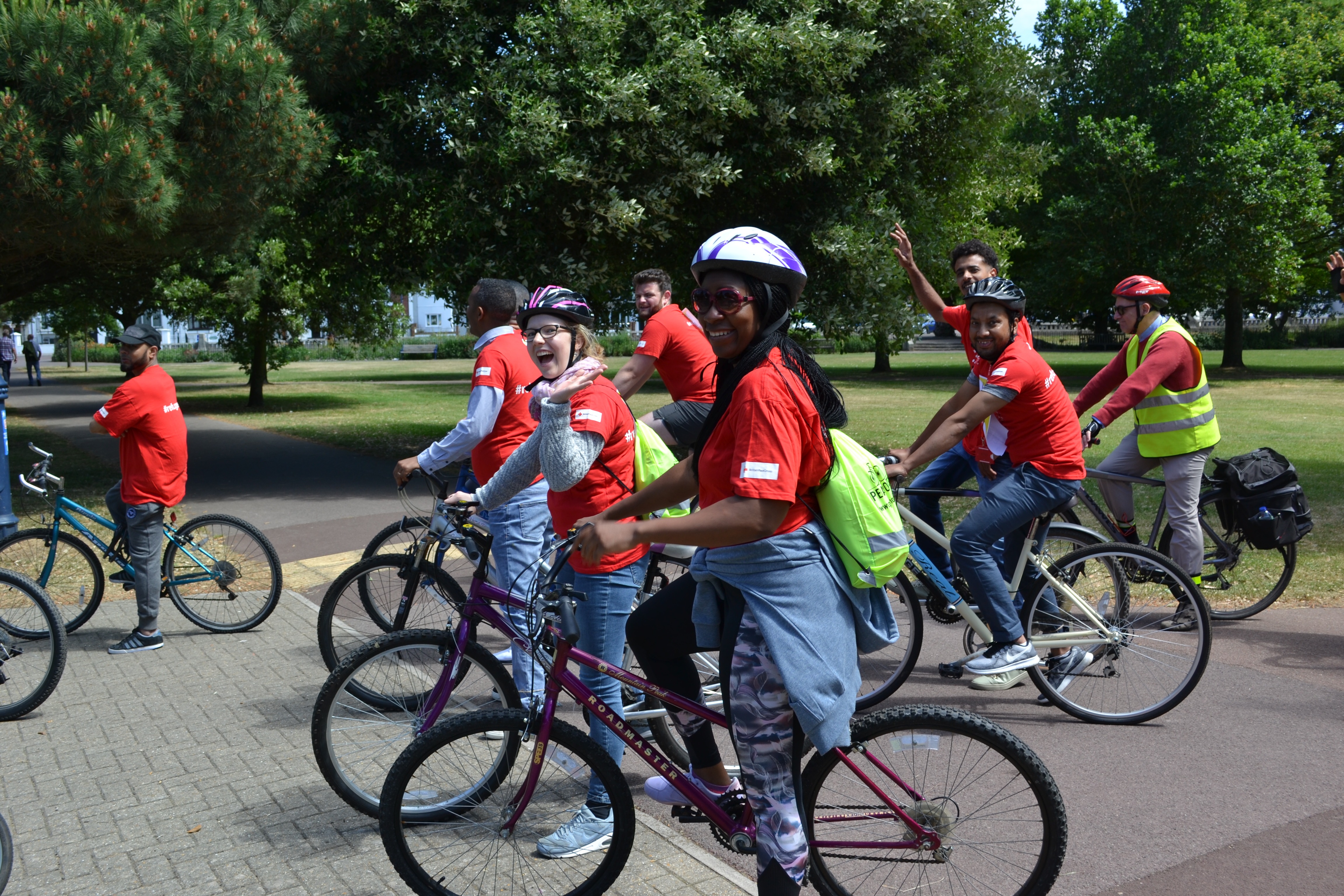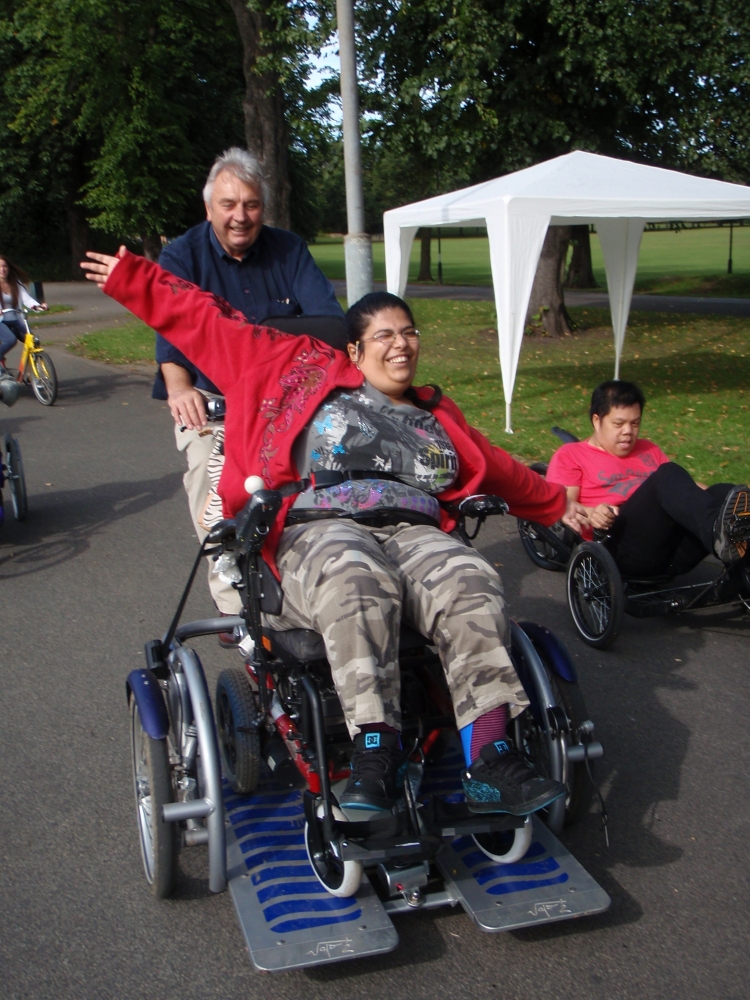£150,000 of National Lottery funding to help Cycling UK tackle inequality in sport and physical activity
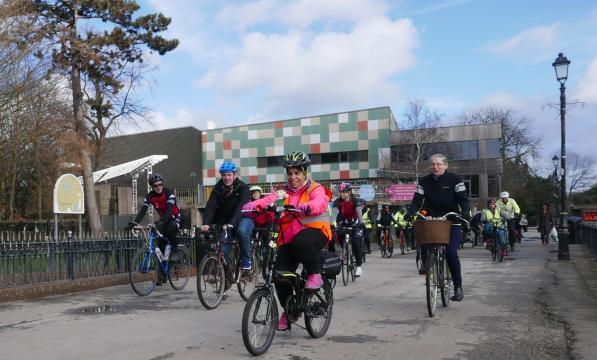
- Money from Sport England’s Tackling Inequalities Fund will support Community Cycle Clubs to get back up and running following the pandemic
- Support will particularly help people from Black, Asian and Minority Ethnic (BAME) backgrounds and lower socio-economic groups (LSEG), who are most at risk of becoming inactive at this time
Cycling UK, the national cycling charity, has been awarded £150,000 of National Lottery funding from Sport England’s Tackling Inequalities Fund. The fund aims to tackle inequalities in activity levels through working with its partners to reach those most in need as a result of the impact of Covid-19.
The funding will allow Cycling UK to support and sustain its network of Community Cycle Clubs (CCCs) across the country. The charity, together with Sport England is currently considering bids from CCCs, with a particular focus on helping people from Black, Asian and Minority Ethnic (BAME) communities and lower socio-economic groups (LSEG). Research has shown that these are the individuals who often face challenges in maintaining an active lifestyle, and these challenges have been exacerbated by the Covid-19 pandemic.
Sport England’s work on Tackling Inequalities focuses on reducing the negative impact of Covid-19 on activity levels in under-represented groups, ensuring gaps between those who are active and those who are not do not widen during this period. Sport England has initially channelled £3.3m through the 43 Active Partnerships across England to support community groups in their areas. It is also investing further funding through national partner organisations that have specific expertise and reach. This funding and support will enable community groups working with target audiences – Lower Socio-Economic Groups, Black, Asian Minority Ethnic Communities, Disabled People and People with Long-Term Health Conditions (LTC) – to continue to exist and engage with their communities, with a view to keeping them active during both the lockdown and early recovery stages.
This funding will help Community Cycle Clubs get back up and running, buy equipment and train staff, getting the people who need them most back on their bikes
James Scott, Cycling UK director of behaviour change and development
James Scott, Cycling UK’s director of behaviour change and development, said: “Many of our Community Cycle Clubs have had to stop or reduce their activities because of the pandemic, which has made it more difficult for people to keep active at a time when physical and mental wellbeing are more important than ever. The effect of this has hit people from BAME and LSEG backgrounds especially hard. This funding will help the clubs get back up and running (while complying with the latest government advice), buy equipment and train staff, getting the people who need them most back on their bikes.”
Tim Hollingsworth, Sport England’s chief executive, said: “We are proud to be able to provide funding and support to Cycling UK in this difficult period. This funding will help support our valuable community infrastructure that is so important in keeping the nation active and will also provide important connections and reconnections for people whose lives have been affected by Covid-19, and for whom remaining active is so important for their physical, mental and social wellbeing. We know from our research and data that there are existing inequalities between groups when it comes to activity levels, and Covid-19 has re-enforced these.
“Thanks to the support of the National Lottery and its players, the Tackling Inequalities Fund will be both crucial and central to ensuring no one is left behind when it comes to having the opportunity to be active during this period. This builds off the back of our £35m Community Emergency Fund that has already reached and supported over 7,500 community clubs and groups across England.”
Contact information
For more information, please contact the national Cycling UK press office. Due to the restrictions caused by the coronavirus outbreak, currently the main press office number (01483 238 315) is not being monitored. If you would like to speak to a member of the press office during working hours (0900 - 1700) please call Rob Kingston on 07880 42 4912 or email publicity@cyclinguk.org. Out of hours, call 07786 320 713.
Notes to editors
- Cycling UK, the national cycling charity, inspires and helps people to cycle and keep cycling, whatever kind of cycling they do or would like to do. Over a century’s experience tells us that cycling is more than useful transport; it makes you feel good, gives you a sense of freedom and creates a better environment for everyone. www.cyclinguk.org
- The Sport England Tackling Inequalities Fund is part of Sport England’s overall £210m support package to help the sport and physical activity sector through Covid-19. Sport England is working with active partnerships and national partners who have specific expertise engaging with our priority audiences. Further information on this fund can be found here: www.sportengland.org/tackling-inequalities-fund.
- National Lottery players raise £30m every week for good causes, funding arts, heritage, sports, voluntary and charity projects around the UK. For more information on good causes in your area go to www.lotterygoodcauses.org.uk.
- Sport England is a public body that invests up to £300m of National Lottery and government money each year in projects and programmes that help people get active and play sport. It wants everyone in England, regardless of age, background, or level of ability, to feel able to engage in sport and physical activity. That’s why a lot of its work is specifically focused on helping people who do no, or very little, physical activity and groups who are typically less active, such as women, disabled people and people on lower incomes. For more information, see www.sportengland.org.

